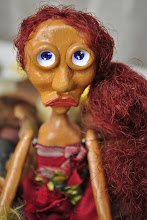Information for project
Below is some of the information that I had gatherd for the book project about Brooklyn Heights, I don't think I used any of it!:
Know Your Neighborhood
Population: As of the 2000 census, 22,493 people live here, up 11.5% since 1990. Of that population, 77% is white, 7% African American, 5% Asian American, 7.5% Latino and the remainder, multi-racial.
Income: Heights per capita income is $60,973, which is up 14.5% from 1990. But, about 14% of our neighbors live in poverty, and less than 10% of them are over 65.
Education: 71% of the Heights population over 25 years old are college graduates; the comparable figure for all of NYC is 27%
Kids: The proportion of Heights kids in pre-school, nursery or kindergarten is about the same as it is in the rest of the city. But the proportion who are in elementary or high schools is less than half what it is city-wide. This suggests that when their kids reach grade school age, families start moving elsewhere, because they can’t afford or can’t get into private schools and are reluctant to send their children to a neighborhood public school. That’s why the BHA is so determined to help make PS8 a place you’ll want to send your kids.
Welcome neighbor! Only about 49% of residents have lived in their current home for five or more years. Some moved from elsewhere in the Heights or Brooklyn, but it appears that nearly 40% are new to the borough.
Homeowners or Renters? In recent years, co-op/condo ownership has increased significantly here. Of the 12,042 housing units in the Heights, 57% are renter-occupied, 40% owner-occupied and 3% vacant.
About those parking spaces: 33% of Heights households own at least one car. That’s over 3,800 cars, not counting workers, commuters, shoppers and two-car families. The percentage is slightly higher than Manhattan’s, but lower than the citywide or Brooklyn norms.
The message: The Heights is becoming more diversified and refreshed with more and more new folks moving in. Our job is to make sure these newcomers don’t just live in the neighborhood, but become a real part of the community. We think joining the BHA is a good way to start.


0 Comments:
Post a Comment
<< Home